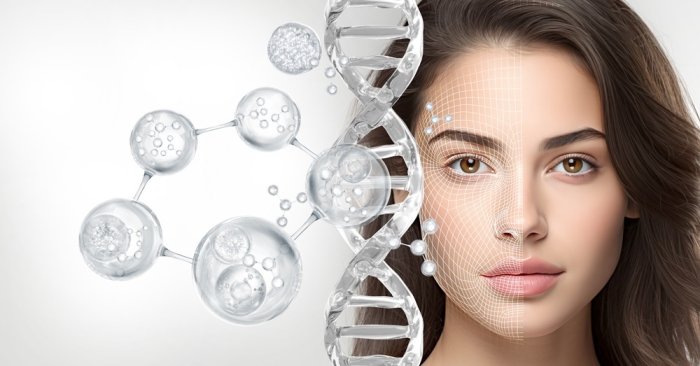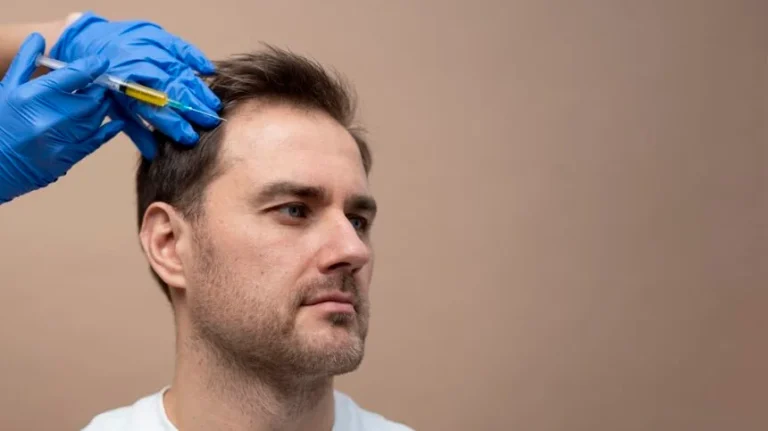You eat every day, but are you getting enough biotin from your meals? This water-soluble vitamin keeps your body running smoothly and plays a crucial role in supporting biotin for hair growth, healthy skin, and strong nails.
Most people can meet their daily needs through natural food sources without any supplements.
Eggs Pack the Biggest Biotin Punch
One whole cooked egg delivers about 10 micrograms of biotin, which equals 33% of your daily needs. That means three eggs in your morning omelet covers your entire daily requirement.
The key is cooking your eggs properly. Raw egg whites contain avidin, a protein that actually blocks biotin absorption.
When you cook eggs, the heat breaks down avidin and lets your body absorb all that biotin goodness.
The biotin sits mainly in the yolk, so don’t just eat egg whites if you’re trying to boost your biotin intake.
Whole eggs give you the complete package plus protein, healthy fats, and other B vitamins.
Organ Meats Lead the Biotin Charts
If you can handle eating liver, you’ll get more biotin than from any other food source.
A 3-ounce serving of cooked beef liver provides approximately 30 micrograms of biotin, which is about 100% of the recommended daily intake.
Cooked chicken liver packs an even bigger punch with 138 micrograms per 3-ounce serving—a whopping 460% of your daily value.
Most people don’t eat liver regularly, but even other meats contribute decent amounts. A 3-ounce pork chop provides nearly 4 micrograms, as does a cooked hamburger patty.
Nuts and Seeds Make Easy Biotin Snacks
You don’t need exotic foods to boost your biotin levels. Common nuts and seeds work perfectly.
A quarter-cup of roasted sunflower seeds offers 2.6 micrograms of biotin, or 9% of the daily value, while the same amount of roasted almonds contains 1.5 micrograms, or 5% of the daily value.
Six walnut halves provide 9.5 micrograms of biotin, making them one of the richest nut sources. You can eat these raw, toss them in salads, or blend them into homemade nut butters.
Your Daily Biotin Needs Are Pretty Small
The Daily Value for biotin is 30 micrograms per day for adults ages 19 years and older. Lactating women need 35 micrograms daily. These amounts might sound tiny, but they’re all your body needs to function properly.
Biotin deficiency is extremely rare in healthy people who eat a balanced diet. Biotin deficiency is so rare that there isn’t enough evidence to establish a Recommended Daily Allowance (RDA) or Estimated Average Requirement (EAR) for it.
Here’s a quick breakdown of how different foods stack up:
| Food Source | Serving Size | Biotin Content | % Daily Value |
| Beef Liver | 3 oz cooked | 30.8 mcg | 103% |
| Whole Egg | 1 cooked | 10 mcg | 33% |
| Sunflower Seeds | 1/4 cup | 2.6 mcg | 9% |
| Sweet Potato | 1/2 cup cooked | 2.4 mcg | 8% |
| Almonds | 1/4 cup | 1.5 mcg | 5% |
Sweet Potatoes and Mushrooms Add Variety
A half-cup serving of cooked sweet potatoes contains 2.4 micrograms of biotin, making them one of the best vegetable sources. Sweet potatoes also give you fiber, vitamin A, and antioxidants.
A 1-cup serving of chopped, fresh button mushrooms boasts 5.6 micrograms, or 19% of the daily value. Even canned mushrooms work well if fresh ones aren’t available.
Fish and Dairy Round Out Your Options
Salmon provides both biotin and omega-3 fatty acids. Salmon is also rich in omega-3 fats, which may be of interest to people looking to protect hair health. Other fish like tuna also contain smaller amounts of biotin.
Milk, cheese, and yogurt all contain biotin in varying amounts. One cup of 2% milk has 0.3 micrograms of biotin. While dairy products don’t provide huge amounts, they add up when you include them regularly in your diet.
The Truth About Biotin for Hair Growth
You’ve probably seen countless ads claiming biotin supplements will give you amazing hair. But here’s what the research actually shows: Despite its popularity in the media and amongst consumers, biotin has no proven efficacy in hair and nail growth of healthy individuals.
There have been no studies demonstrating biotin supplementation to be beneficial for hair growth in healthy individuals.
The science only supports biotin helping people who actually have a biotin deficiency or specific medical conditions.
If you’re already eating a balanced diet, extra biotin won’t magically transform your hair. Biotin supplements are only likely to prevent hair loss and promote hair growth in people with a biotin deficiency.
Simple Ways to Boost Your Biotin Intake
You don’t need a complicated meal plan to get enough biotin. Here’s how to include more biotin-rich foods naturally:
Start your day with scrambled eggs or an omelet. Add some mushrooms and you’ll hit a good portion of your daily needs right at breakfast.
Snack on a handful of almonds or sunflower seeds instead of processed snacks. Keep some roasted nuts in your desk drawer for easy access.
Bake or roast sweet potatoes as a side dish. They’re naturally sweet and pair well with almost any protein.
Include fish like salmon in your weekly meal rotation. You’ll get biotin plus heart-healthy omega-3s.

Most People Already Get Enough
Most people get plenty of biotin from their diet. No supplements needed. As long as you eat enough protein and eat a variety of food groups and types of food, there’s no reason to be concerned that you’re not getting enough biotin.
Your gut bacteria also produce some biotin naturally. Bacteria in the large intestine also produce biotin.
This internal production, combined with biotin from food, usually covers your needs completely.
Frequently Asked Questions
What is biotin and why is it important?
Answer:
Biotin is a water-soluble B vitamin (B7) that helps your body convert food into energy. It’s also essential for maintaining healthy skin, hair, and nails, as well as supporting metabolism and nerve function.
How much biotin do I need daily?
Answer:
Adults need about 30 micrograms of biotin per day. Lactating women need 35 micrograms. This small amount is typically easy to meet through food.
Is raw egg healthy for biotin intake?
Answer:
No. Raw egg whites contain avidin, a protein that blocks biotin absorption. Cooking eggs breaks down avidin, making the biotin available to your body.
Can I get enough biotin without supplements?
Answer:
Yes. Most people get enough biotin from their daily meals—especially if they eat eggs, nuts, meat, and vegetables regularly. Supplements are rarely necessary unless there’s a diagnosed deficiency.
Do biotin supplements really help with hair growth?
Answer:
Only if you have a biotin deficiency. There’s no scientific evidence that biotin supplements improve hair or nail growth in healthy individuals. The benefits promoted in ads are mostly anecdotal.
What are signs of biotin deficiency?
Answer:
Biotin deficiency is extremely rare, but symptoms can include:
- Hair thinning or hair loss
- Skin rash around the eyes, nose, and mouth
- Fatigue or depression
- Brittle nails
This usually occurs in people with underlying health issues or those on long-term antibiotics.
How can I naturally increase biotin in my meals?
Answer:
- Eat scrambled eggs or omelets with mushrooms
- Snack on sunflower seeds, almonds, or walnuts
- Add sweet potatoes as a side dish
- Include salmon in your weekly meals
These foods are easy to incorporate and offer other health benefits too.








